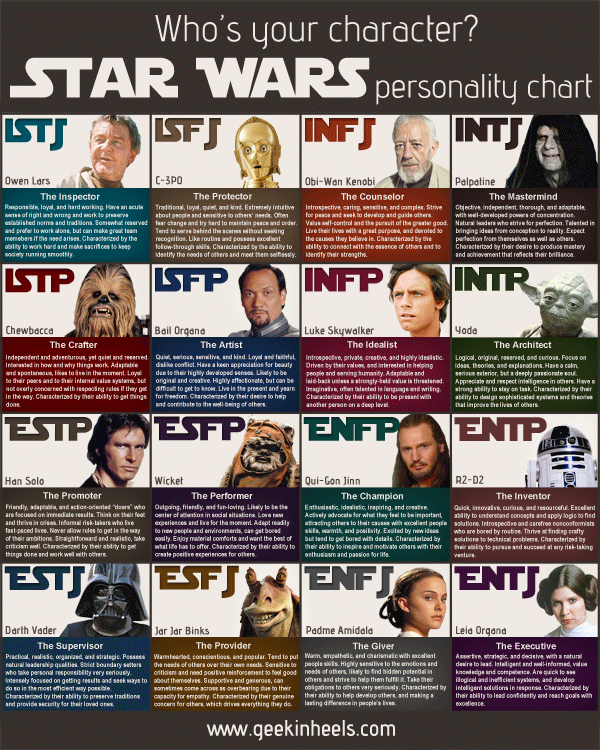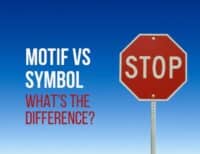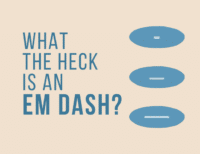Back at the end of April, we discussed using the Myers Briggs test to develop your characters. We covered the more obvious personality traits: Extroversion vs. Introversion and Thinking vs. Feeling. I would feel bad if we didn't take the plunge into rounding out all of the elements of the Myers Briggs test, so here we're tackling Intuition vs. Sensing and Judging vs. Perceiving, which are often the harder Myers Briggs character traits to explain.

See the original Star Wars Myers Briggs Chart at geekinheels.com
Intuitive and Sensing Myers Briggs Characters
Let's start with Sensing and Intuition (shown as N in the MBTI so as not to be confused with Introversion).
On the surface, those words seem to mean the same thing. If you're very intuitive, you would probably also be pretty sensitive (sensing) to your surroundings, right? To an extent, that's the case; most of us work both intuitively and sensitively according to the MBTI definitions.
But here's what makes an S (sensing) different than an N (intuitive): someone who primarily displays the Sensing trait will use their five senses (get it?) to interpret their surroundings, while someone who is more Intuitive will pay more attention to the patterns in that information, and will interpret their surroundings through that lens.
In short, Sensers tend to think more concretely, while Intuitive types tend to think in the abstract.
Here are some examples of characters with these Myers Briggs traits to give you an idea of what this looks like practically:
Intuitive Characters (N's)
- Holden Caulfield from Catcher in the Rye
- Tywin Lannister from Game of Thrones
- Luke Skywalker from Star Wars
- Gandalf from Lord of the Rings
- Ivan (Vanya) Karamazov from The Brothers Karamazov
Sensing Characters (S's)
- Aragorn from Lord of the Rings
- Inspector Javert from Les Misérables
- Han Solo from Star Wars
- Eddard Stark from Game of Thrones
- Dmitri Karamazov from The Brothers Karamazov
Judging and Perceiving Myers Briggs Characters
Judging vs. Perceiving gets equally confusing on the surface. How are those two terms opposing forces?
According to the MBTI definition, someone who is a Judger tends to prefer structure and order, being settled when a decision is made.
A Perceiver, on the other hand, prefers a more flexible and adaptable lifestyle, tending to gravitate towards the information gathering before a decision is made.
This trait only applies to what is visible to the outside world; in other words, someone might show signs of both a Judging and a Perceiving personality, but they only show their Perceiving side to the outside world, meaning that according to the MBTI, they are a Perceiver.
Here are a few examples of characters with these Myers Briggs traits to give you an idea of what this looks like practically:
Judging Characters (J's)
- Hermione Granger from Harry Potter
- Atticus Finch from To Kill a Mockingbird (he's probably an INFJ or INTJ, but he could be an INFP)
- C-3PO from Star Wars
- Robb Stark from Game of Thrones
Perceiving Characters (P's)
- Harry Potter from Harry Potter
- Yoda from Star Wars
- Tyrion Lannister from Game of Thrones
- Anne Shirley from Anne of Green Gables
The Myers Briggs Test and Your Characters
These four traits may not be getting quite as much love in the cultural discourse as Extroversion and Introversion, but they are equally useful in fleshing out a character.
Is the hero of your story more concerned with the larger goal ahead of him (an Intuitive habit), or is he more focused on the details of how to achieve that goal (which is what a Sensor would do)? Maybe the sidekick prefers to know the plan ahead of time (a typical Judging trait), while the hero is more interested in changing up the details to adapt to the changing scenario (Perceivers love to live by the seat of their pants).
Putting opposing personality types in play with each other can create interesting subconflicts, or keeping similar types together can show why the hero and her sidekick work so well together.
What is your Myers Briggs personality type? What Myers Briggs types are your characters?
Need more grammar help? My favorite tool that helps find grammar problems and even generates reports to help improve my writing is ProWritingAid. Works with Word, Scrivener, Google Docs, and web browsers. Also, be sure to use my coupon code to get 25 percent off: WritePractice25
PRACTICE
Try giving your characters the Myers Briggs Test. You can find a simple version of the Myers Briggs test here. Step into your character's thought process, embody their personality, and take the test as them. Then come back here and report your results. Did the results surprise you?
Have fun!







I was surprised to find that the characters I enjoyed writing the most had my personality type (ISTJ/INTJ). The test could also be helpful for adding complexity for flat characters, I think. I’m going to go try that now…
I’m the same way. I love INFP heroes, although they can sometimes be a little whiny (e.g. Luke Skywalker, Frodo). 🙂
I’ve used this method for years and recommend it to my writing students. But I haven’t seen the comparison to Star Wars! This is a keeper!
We can’t claim credit. Geekinheels has created a couple of these that went viral. It’s pretty fun, isn’t it?
I was interested to see how my character Jayce would work here. In some ways she is like me but in others we are the opposite. The results were:
INTJ
Introvert(44%) iNtuitive(38%) Thinking(12%) Judging(44%)
You have moderate preference of Introversion over Extraversion (44%)
You have moderate preference of Intuition over Sensing (38%)
You have slight preference of Thinking over Feeling (12%)
You have moderate preference of Judging over Perceiving (44%)
I definitely thought this was helpful mainly because it caused me to really think about this character rather than simply write about how I would feel or react to a situation. I learned a lot more about her. She is much more shy than I am.
That’s so cool. Thanks for sharing this. Glad you got to know her better!
Haven’t done my characters yet, but it looks like I’m THE CHAMPION: ENFP. Thanks, Liz!
I could totally see that, Carlos.
I did this test for both my main characters: Alex, my first main character and narrator, is an INFP. Alicia, my other main, is an INTJ. I’m interested to see if these results will change as both of them develop over the course of the story
I gave my two main characters the test, my protagonist and his best buddy. When I’d created them I tried to give them opposite traits, and I’d say I did fairly well with that since the best buddy has a ENTP personality type and my protagonist has the same personality as myself: INTJ. I was suprised to learn that…
I LOVE Myers-Briggs (I enjoy guessing my friends’ types) which is why it’s surprising that I’ve never thought of using it with my characters! I just started working on a new novel, so I’ll definitely have to think about what types my two lead characters are.
Thanks for this tip. Actually running through the questions made me ‘think’ a little more about my characters. Some questions were difficult to answer on their behalf. A great tool. The questions themselves are useful for character development and the final analysis extremely useful. Great post. Thanks again.
Dawn 🙂
I have found that most of my characters are INFP. I rely on my feelings. I don’t plan a lot, just dive right in screaming, “Screw logic!” Besides, abstract thinking is a lot more fun and limitless than logical thinking.
Great article! I hadn’t thought of identifying the Myers-Briggs types for my characters before. Just at a glance, I think my WIP’s protagonist is an I_FP, and I’m not sure yet if she’s Sensing to Intuitive.
I found not surprisingly to me, that my main characters personality varied widely from mine. I am INTP or INFP, it’s pretty close between F and T. But my character is ISTJ. Very different! I say that makes sense because I find I have to do a lot of thinking to get in his role at times.
I’m a student (and an INTJ), and I sometimes use Myers-Briggs to help create characters. I tested one I was developing, and he was an ENFP. He’s kind of challenging to write, but still a good character. 🙂
I’ve been familiar with MBTI for years, but didn’t think to start typing my characters until recently. Found your article in the process of finding other folks who decided to do that. I find the MBTI types make for a great starting template for new characters, and good for keeping established characters on track and in character. Especially when you can find some good resources that explain how various types are most likely to react to various situations like surprises, grief, betrayal, responsibility, and whatnot.
It’s also been amusing finding out which character is what. I’m an INTJ, and my lead is an ENTP and their love interest is an ESFJ. And a lot easier to write than I would have guessed.
I’m an ISTJ/INTJ and was convinced that one of my main characters was ENFJ, whereas when I pretended to be him doing the Myers-Briggs test, I got ESFP, which was strange. But I used this approach for the invention of two of my other characters and it really helps to keep their personality in check. Thank you for the advice!!
I have 9 male characters. 3 of them are ISFJs, and the rest are INFP, INFJ, ENFP, ENFJ, INTJ, and ISTJ. I’m an INFP.
While I am an INTP myself, the main character in my story happened to be an ESFJ. I guess that’s because I never believed I could ever become a hero, so I imagined a heroine who’s totally unlike me.